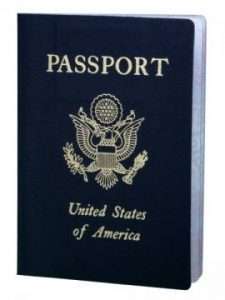General Pickpocket Scams in Amsterdam Holland
Amsterdam is known as the Venice of the North. The city itself fans out from the Centraal train station with a system of canals built to support the increasing population in the 17th century and to provide protection from high waters. The oldest area of town lies to the east of the main road Damak, and is known as the quays or the famous Red Light District, and to the south of the quays lies the old Jewish quarter of Waterlooplein. The half-circle running canals are lined with narrow, colorful, wooden houses and the city is full of architectural wonders in the Renaissance, Gothic and Baroque styles. Amsterdam offers something for every taste from architecture, a lively nightlife, history, and culture.
Famous Scams in Amsterdam
The following scams have placed Amsterdam, in particular, as one of the top 10 cities for pickpockets, according to a TripAdvisor poll. Any of the following situations can occur in any city in the Netherlands or even Europe, while walking on the street, in a museum or church, on a train or even in your hotel lobby.
The Fake Police Officer: You are walking during the day through an alley and two officers approach you and your partner and tell you that there is a scam going on in Amsterdam where storekeepers are making change with counterfeit notes, so they are conducting a search to make sure that you are not carrying any of these fake notes. You pull out your money to show the officers and they quickly swipe it from you and run away.
Scam: There are gangs that pretend to be – and even go so far as to dress up as – police officers to earn your trust. The perpetrators are usually from Eastern Europe and speak English. There are many ways how this scam can play out: 1) One officer will question you while the other can at the same time pick your pockets; 2) The officers may pretend to arrest you in order to gain access to your belongings and perform a “search”; 3) The officers may ask to see your cash to make sure it is not counterfeit and then steal it; 4) The officers may ask to see your passport, credit card, or even ask for your PIN number and then steal the items.
Solution: First ask to see identification. If you are suspicious about the authenticity of the officers do not show your wallet, instead offer to meet him at the nearest police station. If the fake officer becomes aggressive, yell for help and try to draw attention to yourself or ask locals to call the police.
The Foreign License Plate: You are making a tour through Europe and you have a rental car from Germany. You park your car on a side street near your hotel for the evening and keep the majority of your luggage in the trunk, so you don’t have to lug it in and out of every hotel. The next morning, you find that the back window of the car has been smashed in and everything, even from the trunk, has been stolen.
Scam: There is a sophisticated theft ring in Amsterdam who target tourists in vehicles. The thieves search for cars with foreign license plates or rental car insignia. The perpetrators know that most tourists will store valuables in the trunk, believing it is safe.
Solution: Always keep your car doors locked and park in paid-parking garages where security is provided.
The Cookie Monster Scam: A friendly stranger on the street approaches you and starts a conversation. You are excited about the opportunity to speak with a local, so you speak with the man and he offers you a cookie. The man is so friendly and you don’t want to appear impolite, so you accept the treat and eat it. Suddenly you get really sleepy and find a park bench to take a nap.
Scam: The starts a conversation to gain your trust and get your guard down. He then offers you a cookie that is laced with drugs, so you pass out. He follows you and steals all of your belongings. The original Cookie Monster has been arrested, but there are copycat attempts with other food items such as a can of soda.
Solution: Never take food or drink from a stranger. Do not accept anything from strangers on the street.
The Hotel Overbooking Scam: You book three nights with a hotel-booking website such as Venere.com. Once you arrive, the hotel receptionist informs you that the hotel is booked. You show the receptionist your confirmation number and the hotel apologizes and offers to help you find a similar accommodation. You go to the other hotel and it is a total dump, but it is late, so you decide to stay.
Scam: Many hotels will rent rooms to walk-in guests because they can charge a higher rate than many discount hotel booking sites. This usually happens to guests who arrive after 2pm.
Solution: Try to book with a site that pays for the room immediately, rather than paying once you arrive. This will guarantee that your room will not be given to another guest. It is also a good idea to call the hotel before arriving to confirm the reservation and to inform the hotel when you will be checking in.
The Museum Scam: You are waiting in the long line to get into the Ann Frank Museum when a couple walks up to you and begin to ask tourist questions.
Solution: Pickpockets love to target tourists when they are stopped – they are a very easy mark – especially at the popular Ann Frank Museum. Make sure you are always alert to someone who walks up to you unannounced – it could be a set up to where someone tries to remove your wallet or camera from your purse or travel bag when you are distracted by the conversation to someone else.
Broken Glasses Scam: Somebody drops glasses on the ground and steps on it, however, you are the one accused of stepping on them.
Solution: This is another Amsterdam pickpocket scam designed to get you to stop for a group of pickpockets can target you. As one of the thieves gets nasty in your face, one of the accomplices tries to remove something from your bag or purse. Know this scam up front – put your back to a nearby wall if you are so inclined to have a discussion with someone who pulls this scam. Carry a travel bag that has pickpocket prevention features like these to avoid this type of theft.
Scams reported by the US Consulate in Amsterdam
Below are two scams reported by the US Consulate in Amsterdam. While this is not a direct scam for tourists who are already in Amsterdam, it may be the reason for your trip over the pond (Atlantic).
- “Each year, thousands of people lose money to sophisticated Advance Fee Fraud (AFF) schemes. These are known internationally as 4-1-9 fraud, after the section of the Nigerian penal code which addresses fraud schemes. Victims are usually contacted through email with promises of lottery winnings, an inheritance, an incredible investment opportunity, or other ways to get rich quickly. Unfortunately, many of these schemes are actively operating in The Netherlands, and American citizens may fall prey to these criminals. Please be advised that offers of money that will be made available to you in The Netherlands are likely to be fraudulent, and that money spent on such schemes cannot be recovered. Perpetrators of 4-1-9 schemes are often very creative and innovative and use a variety of tactics to entice victims into the scheme. Many victims are convinced that they have been singled out from the masses to share in multi-million dollar windfall profits for doing absolutely nothing. Before you are tempted to participate in such an offer, please review some common features of fraud schemes.
- An individual or company receives an e-mail, letter or fax from an alleged official representing a foreign government or agency;
- An offer is made to transfer millions of dollars in “over-invoiced contract” funds into a personal bank account;
- The individual is encouraged to travel overseas to complete the transaction;
- The individual is requested to provide blank company letterhead forms, bank account information, telephone/fax numbers, etc.;
- The individual receives numerous documents with official looking stamps, seals, and logo testifying to the authenticity of the proposal;
The individual is asked to provide up-front or advance funds for various taxes, attorney fees, transaction fees or bribes.
Other forms of 4-1-9 schemes include: c.o.d. for goods or services, real estate ventures, purchase of crude oil at reduced prices, a beneficiary of a will, lottery winner, recipient of an award and paper currency conversion. While the victim’s bank account information may be requested, this is often an indicator to the culprit that they have hooked another victim, rather than an attempt to plunder the account. They will gain access to your money through other means! ”
- “The Consulate General of Amsterdam has received a number of complaints from American and Dutch citizens who have been lured into online relationships via false pretenses.” (US Consulate-Amsterdam) The perpetrators are primarily men who pretend to be women in chat rooms or on dating websites and after the relationship develops, he/she will start frequently asking for money and that it be transferred through wire services. The swindler claims that the money is needed to resolve a family issue or to arrange for a trip to the United States or to The Netherlands.
When it is time to make the trip, the swindler will typically say that something has come up and they “can’t leave the country”. Perhaps an injury that leaves them in the hospital and one of their family members contacts you requesting money for an emergency surgery. There are many ways that this scam can play out, but the sole purpose is to get as much money as possible from the victim.
ATM Machines & Credit Cards
Most ATM machines in Amsterdam are safe and often provide a better rate of exchange than exchange bureaus. Because money is easily accessible from ATMs, they are excellent targets for petty thieves waiting to make a quick buck. When you access your bank account from an ATM, cover the keypad when you enter your PIN and do not count your money in a public place.
Additionally, the Overseas Security Advisory Council reports, “During the past year, there has been an increase in credit card skimming conducted by criminals. Police are making arrests against skimmers; however, precautionary measures should be made when using credit cards, even when using them for paying parking fees.” (The Netherlands 2010 Crime & Safety Report)
10 Basic Tips to Protect Your Belongings from Pickpockets in Amsterdam
Although millions of people have fallen victim to petty theft, it is most certainly not a reason to avoid the riches of Amsterdam. Prepare for your departure to avoid being a target on your trip. Travel companies have even created specialized products to help you keep your belongings safe while viewing the wonders of the world; take advantage of these tools.
- Research ahead of time to determine areas with high pickpocketing activity. Either avoid these areas or be vigilant when traveling through.
- “Ga Weg!” – ”Get Lost!” Learn a few Dutch phrases to catch the pickpockets off guard.
- Appear confident, even if you are nervous, or lost. If you do get lost, step into a café or museum lobby to review your map.
- Avoid talking to strangers. If unavoidable, stay alert and keep some distance when speaking with them.
- Use ATMs located in bank lobbies during bank opening hours. Block the keypad when entering your PIN.
- During the day, walk on the sunny side of the street and avoid empty streets or alleys. Most pickpockets lurk in the shade.
- Be suspicious of strangers who try to position themselves close to you.
- Be on high alert in areas that are crowded and create the opportunity for people to easily bump into one another: buses, trams, open-air markets, etc.
- If possible, travel in groups – safety in numbers.
- Try to dress like the locals, no shorts, flip-flops, baseball caps, etc.
- When traveling on a tram, attempt to find a seat. If a seat is not available, try not to stand by the doors or near the attendant on board.
- Do not pull out cash in public to avoid drawing attention to you. Keep your money spread out in multiple locations.
- Leave large amounts of cash in the hotel safe.
- Do not examine your map while in a crowded area. Try to study your map before leaving the hotel or while sitting at a restaurant.
- If you carry a backpack or purse in a crowded place, wear the backpack on the front, or your purse across your body.
- When speaking English, speak quietly, so you do not alert pickpockets that you are a tourist.
- Never leave your purse or jacket hanging on the back of a chair.
- If you suspect that you are being followed, do something unpredictable and go into a store. This will catch the pickpocket off guard.
- Do not buy or accept products off of the street.
- Last, prepare for the worst and gather pertinent information such as: credit card phone numbers, make two photocopies of your passport, make additional copies of tickets and hotel reservation information.
Products to Keep Your Belongings Safe from Pickpockets
Travel companies have developed products that provide an additional level of security for valuables, thus giving travelers peace of mind. Such products include special slash-proof backpacks with locks, a portable travel safe, plus travel wallets, waterproof pouches, and wrist, arm or leg wallets.
When making a tour through Europe by car, use a cable locking system with an alarm to help detour thieves. Whether in the trunk of your car or in your hotel room, the Retractasafe with a 24-inch retractable steel cable will help keep your belongings in place.
To carry your passport, money, tickets and credit cards safely around town, hide your belongings in a PouchSafe neck wallet. This version of the neck wallet has a slash-proof strap, three secure pockets and is lightweight and washable making it difficult for pocket thieves to locate and access.
Don’t miss that great camera shot because your camera is locked securely in your travel pack. Use a CarrySafe 100 camera security strap to keep your camera easily accessible and safe. Avoid the threat of “cut-and-run” with this steel reinforced strap, comfort neck pad and the ability to directly attach to the camera.

















